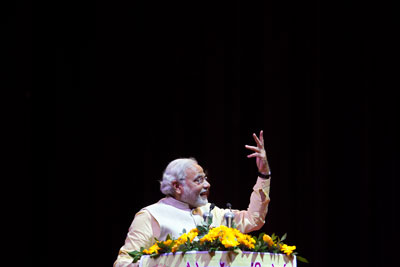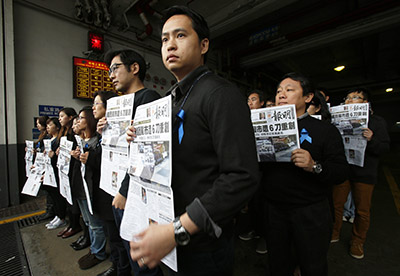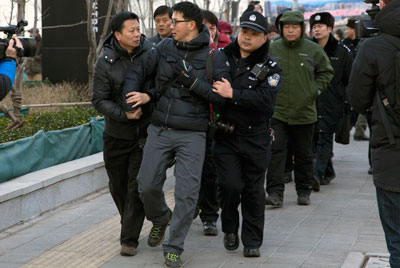Asia
2014
Burma clampdown gathers pace as legislation passed
In a clear step backwards for press freedom in Burma, new legislation will give the government censorship powers and the sole authority to issue and revoke news publication licenses. While the legislation enshrines into law broad press freedom guarantees, specific provisions will give the Ministry of Information ultimate power over what news is permissible for…

Modi’s rise does not bode well for Indian press freedom
As India is set to hold elections next month, journalists covering Narendra Modi, India’s right-wing prime ministerial candidate, are reportedly coming under increased pressure online and in the newsroom for shedding critical light on him. Given these developments, free and independent reporting of the campaign is in doubt–as is the future climate for press freedom…
Chinese journalist Liu Jianfeng crowdsources his funding
Last July, veteran Chinese journalist Liu Jianfeng posted an announcement on the Chinese microblog Weibo, confirming his intention to become an independent investigator and writer. In a country where all media remains state-owned, Liu’s plan was a bold one. He promised to produce four to six independent, investigative stories in the coming year, and to…

Journalists in Hong Kong and China: see our security guide
CPJ’s Journalist Security Guide is now available in Chinese (PDF). The guide has been available in other languages for more than a year but, frankly, we didn’t see a Chinese version as a priority. Last year, after a university professor in China asked if he could translate some sections for his class, we began working…
Media surveillance and ‘the day we fight back’
Today, a broad coalition of technology companies, human rights organizations, political groups, and others will take to the Web and to the streets to protest mass surveillance. The mobilization, known as “The Day We Fight Back,” honors activist and technologist Aaron Swartz, who passed away just over a year ago. Throughout the day, the campaign…
Tougher tactics emerge in China’s media crackdown
Late in 2013, Time’s Hannah Beech posted a great blog on the magazine’s website around the time that about 24 foreign journalists were worried that the visas allowing them to work in China might not be approved: “Foreign Correspondents in China Do Not Censor Themselves to Get Visas,” she told readers. She’s right, of course,…
No justice 3 years after Wali Khan Babar murder
Three years have passed since the murder of Geo TV journalist Wali Khan Babar in Karachi. While no justice has been found in Babar’s case, his death has not been forgotten. Journalists Beena Sarwar, Umar Cheema, and Malik Siraj Akbar along with CPJ’s Bob Dietz commemorated the anniversary of Babar’s death on Monday during a…
On Internet freedom, India’s perilous trajectory
By the time the first story based on former NSA contractor Edward Snowden’s disclosures splashed across the front pages of the world’s newspapers, India had reportedly begun deployment of its own major surveillance architecture, the Central Management System (CMS). The system is a $132 million project that allows central access to all communications content and…
